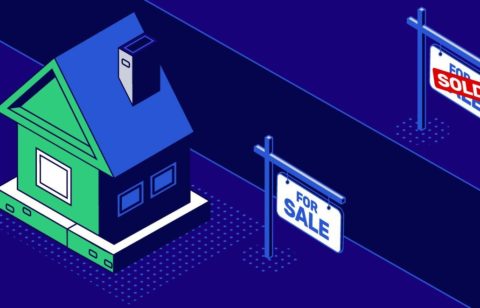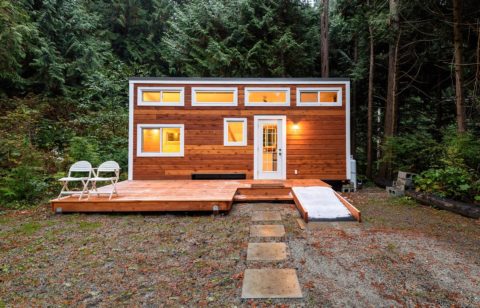Many people dream of buying a house; in fact, homeownership is often referred to as part of the American Dream.
Perhaps you want a place to call your own in which you can create equity and invest in your future as it rises in value. This is a much better strategy than watching your hard-earned money enrich your landlord.
You will also have the freedom of decorating your home without the hassle of getting approval for something as simple as painting a wall or owning a pet.
Of course, there are also cons to owning your home. For one thing, you are responsible for covering all maintenance expenses in addition to the costs of taxes and property insurance.
The odds are that your mortgage payment will be higher than what you currently pay in rent, which could mean less travel or fewer nights out on the town. But with all things considered, the tradeoff can be worth it!
Before you decide to become a homeowner, here are a few to keep in mind:
1. You have crunched the numbers
You have done the math to confirm you have both the upfront and the ongoing money needed to buy a house. Initial funds include the down payment, closing costs, and leftover cash for an emergency fund.
2. You have worked at your job long enough
Most mortgage lenders want to see that you have been working for at least two years. In fact, they will calculate your income based on your job history for the previous 24 months. Having the same job for a longer amount of time could put you at an even greater advantage since it shows stability.
To be prepared, you have done the calculations and know how your income will look to potential lenders. Is it high enough to get approved for a mortgage loan in your price range? If not, you might need to lower the price and your expectations.
3. You know the type of home you want
Let’s say you have looked at the alternatives to a single-family home—a duplex, a townhome, or a condominium.
You like the idea of buying a duplex where you could earn extra income by living on one side and renting out the other. However, the cost of this type of home in an ideal location is more than your budget can accommodate.
While you would love to own a single-family home or duplex, you may have decided it would be best to start with a townhome. A huge plus is not needing to worry about exterior maintenance and lawn care.
You are aware of the monthly homeowner’s fee, and you have it covered in your budget. Your big challenge now may be to find an affordable townhome in a desirable area.
If you work in the city and are looking for a short commute, a townhome in that area may be ideal. However, if you work remotely or don’t mind a longer commute, a quieter place in the suburbs may be worth considering. A huge plus is that you would typically get more bang for your buck outside of a city.
People Also Read
4. You are ready to stay put
Another sign you are ready to buy a home is knowing you will want to plant roots for at least the next three to five years.
If you were to buy and sell in less than two years, you would likely lose money on the home since its appreciation won’t catch up with the required closing costs.
And if the economy were to take a downturn in the next 18 to 24 months, you could find yourself underwater – with the house worth less than the amount of your mortgage.
5. You understand how to maintain a home
You know what homeownership entails. This includes being prepared and willing to do the maintenance work necessary to keep up the home while making timely mortgage payments.
When a window needs caulking, you can do it yourself or afford to hire a repairman. And when winter rolls around, you will be sure to remove those screens and replace them with storm windows to keep your heating bills under control.
Most importantly, you are confident you can remain on budget and manage your money wisely enough to meet the payments on your mortgage, utility bills, and, if applicable, the homeowner’s fee.
This involves taking care of any debt you may owe so that it does not prevent you from making the required payments. In fact, becoming a homeowner debt free is the only way to truly enjoy a fresh start.
6. You know how to get approved for a mortgage
Lastly, you understand the differences between pre-qualification and pre-approval. Pre-qualification is not binding and is something you can do with just about any lender.
Pre-approval, on the other hand, is typically the better option. It shows potential sellers that there is at least one lender willing to grant you a mortgage. This can be especially helpful if you find yourself in a bidding war.
In addition, you understand the importance of getting an appraisal to buy a house. Lenders are typically unwilling to loan you more money than what the property is worth.
You might love that townhouse listed at $280,000 but if it appraises for just $250,000, no lender is likely to loan you the amount needed. When this happens, it’s time to negotiate with the seller for a lower price or walk away.
Following through with the big purchase
No matter which type of home you decide to live in, the first step is matching the criteria above. In addition, if you have young children, it’s important to check out the school district’s ratings.
Some people recommend knocking on a potential neighbor’s door and introducing yourself. Do they act friendly and sincere, or do they quickly begin gossiping about everyone on the block?
Purchasing a home is one of life’s most exciting milestones, and there are many things to consider. But in the end, you will be rewarded with a place to call your own.







